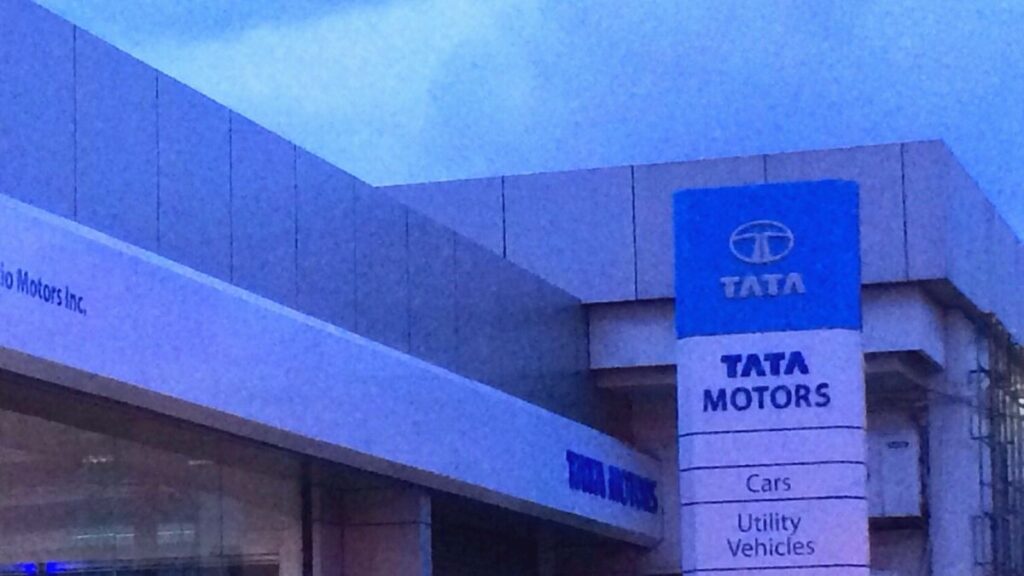On Monday, the Tata Motors Ltd (TML) board approved a proposal to demerge the automobile maker into two separate listed companies. Post the Tata Motors demerger, one entity will house the commercial vehicles (CV) business and related investments and the other will encompass the passenger vehicles (PV) businesses, including domestic PV, electric vehicle (EV), Jaguar Land Rover (JLR), and their related investments.
Industry watchers and analysts view this move as timely, expecting it to unlock value for the EV business by segregating passenger and commercial vehicle businesses. However, they do not foresee this demerger as a prelude to listing the JLR and EV businesses separately in the future.
Tata Motors Demerger Plan
After market hours, Tata Motors Ltd (TML) revealed its plan to split into two listed companies. The announcement came as the TML stock closed marginally down at Rs 987.2 per share on the BSE.
The Tata Motors demerger will be carried out through a National Company Law Tribunal (NCLT) scheme of arrangement. Shareholders will maintain identical shareholding in both entities. The NCLT scheme will be presented to the TML board for approval in the coming months, subject to necessary shareholder, creditor, and regulatory approvals, which may take 12-15 months. Tata Motors assured that the demerger won’t negatively impact employees, customers, or business partners.
Tata Motors boasts a market capitalisation of over Rs 3.28 lakh crore, having doubled in a year, driven by a robust performance in its passenger vehicles division. It’s in a close race with Hyundai for the second spot in India’s passenger vehicle market, currently the fourth largest globally.
Tata Motors’ Chairman, N Chandrasekaran, Praises Strong Turnaround
N Chandrasekaran, chairman of the board of Tata Sons, highlighted Tata Motors’ significant turnaround in recent years. He emphasized that the automotive business units, operating independently since 2021, have delivered consistent performance.
Chandrasekaran believes that the demerger will enable each business unit to capitalize better on market opportunities, enhancing focus and agility. This, in turn, will lead to a superior experience for customers, better growth prospects for employees, and enhanced value for shareholders.
Tata Motors announced that the demerger is a logical progression of the earlier subsidiarisation of the PV and EV businesses in 2022. This move will empower each business to pursue its strategies, achieve higher growth, and reinforce accountability. Furthermore, the company highlighted considerable synergies to be harnessed across PV, EV, and JLR, particularly in areas like EVs, autonomous vehicles, and vehicle software. The demerger aims to secure these synergies.
Deven Choksey from DRChoksey FinServ on Demerger Rationale Analysis
Deven Choksey, managing director of DRChoksey FinServ, highlighted the rationale behind the demerger. He pointed out that the electric vehicle business requires a significant investment of around $2 billion for portfolio development and growth. With EV companies fetching good valuations, Choksey believes it’s the right time to demerge the PV and CV businesses to unlock valuations.
Choksey emphasized that Tata Motors’ PV portfolio, including JLR (which plans to go electric by 2025), EV business, and its domestic ICE business, presents an attractive proposition for investors. He noted that a combined PV-CV entity is unlikely to attract investors as effectively.
Furthermore, Choksey highlighted the profitability of JLR and domestic PV businesses, estimating a post-tax profit of Rs 20,000-22,000 crore in FY24. He mentioned that the PV business returned to profit in Q3FY23 after seven quarters and has been performing well since then.
Analysis of Trailing 12-Month Performance
In the trailing 12-month period until December 2023, the JLR business outperformed in terms of both revenue and margin. It recorded revenue of Rs 2.91 trillion with an EBITDA margin of 15.4 per cent. The PV business generated Rs 50,016 crore revenue with an EBITDA margin of 6.4 per cent, while the CV business posted revenue of Rs 78,441 crore and an EBITDA margin of 10.3 per cent.
Additionally, the unwinding of the differential voting rights (DVR) shares program is expected to be completed before the demerger. Last July, Tata Motors announced the termination of its DVR or A-share program due to its failure to gain traction on Dalal Street. The board approved a scheme where seven ordinary shares would be issued for every 10 A-shares held, and all outstanding A-shares would be cancelled. Analysts anticipate that the demerger could take 12-15 months, coinciding with the completion of the DVR conversion.
Also Read: Google Calls Gemini Unreliable, Apologises for its Results on PM Modi
Paytm Cuts Inter-Company Ties with Paytm Payments Bank Following RBI Crackdown
Google Delists Several Indian Apps from Play Store Over Policy Violation

